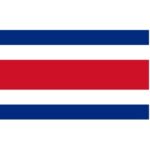

Normally, we associate free zones with exports of goods and very frequently with medical devices. However, service exports in Cosa Rica, according to COMEX statistics, indicate that they have had an annual growth rate of 6%, reaching the figure of US$ 11,790 million in 2022 and of this a significant number has been focused in the technology.
Costa Rica expanded its focus to strengthen the services sector and continued to promote foreign investment from manufacturing companies dedicated to the technology and medical devices sector. This was possible by taking advantage of the country’s bilingual workforce and its strategic position in the region. To achieve this objective, the following are considered key milestones that allowed this transformation: i) introduction of high-tech services, ii) training of a highly qualified workforce, iii) the strategic positioning of the country for the region and iv) the expansion of the type of services that were sought to be brought to Costa Rica, this related to encouraging high-tech companies to be part of this group of investors.
Now, Costa Rica’s transformation into service-focused free zones is not going without challenges. On November 16, during the BLP Free Trade Zone Leaders Forum conference , there was the opportunity to discuss the challenges that currently plague companies under the regime with members of both the public and private sectors. Of which, it was possible to highlight:
Talent Retention: As the service sector continues to grow, the competition to find qualified labor has become an intensive task for new investors. Therefore, the country’s ability to provide a constant supply of this talent has become a challenge and one that the entire sector identifies as a key piece that the government must address. For its part, the government is looking for strategic allies from the private sector who together will help them address this issue. Therefore, it is evident that there is a need for both sectors to work together to create an action plan on this issue.
Global Minimum Tax: With the entry into force in some countries of the global minimum tax, there is uncertainty as to how Costa Rica will apply this rule and the way in which it will affect the free zone regime in the country. The comments from the public sector are aligned with the fact that there will be a need to reform and establish a new direction for the free zone market in Costa Rica. However, the goal is that the alternatives and changes that are eventually implemented are formed in conjunction with the private sector. Therefore, it is important to highlight that new changes are coming, but these changes can also come with new opportunities.
Education of the Specialized Workforce: Since talent retention is a major challenge, it must also be aligned with the creation of a specialized workforce. The country needs to continue building diversified curricula that allow the creation of a qualified workforce. To do this, the government aims to transform the way this workforce is educated. For their part, service companies highlight the investment they must make to train their workforce. However, it is clear that more work must be done hand in hand between both sectors so that the training process is achieved between a combination of work from both parties. For its part, the government recognizes that the work that companies do in this area has been vital to the growth of the country’s workforce.
Attention, the challenges are important, since through the growth of the service sector, Costa Rica has been highly benefited. According to PROCOMER studies, in 2021 free zones generated approximately 164,000 direct jobs. Likewise, of this amount, it has been estimated that 49% of the workforce has been used by service companies. The export of services from the free zone has also become an important source of foreign exchange earnings for the country. On the other hand, Costa Rica’s success in attracting foreign investment has boosted the country’s economic growth and strengthened international relations. Proof of this is the decision of the United States to partner with Costa Rica to promote and strengthen the country’s semiconductor industry.
Costa Rica’s path from the manufacturing-oriented free zone to an innovative and highly skilled service sector is an example of the country’s ability to transform and pursue economic growth. Betting on its strengths, such as investing in its education, developing its workforce, creating investment-friendly environments, has allowed the country to become a competitive player in the global services industry. However, as the country and the world continue to change, there are new challenges ahead that must be addressed. Therefore, the government is right to continue its investment in this sector to seek to maintain this competitive advantage.
For more information you can contact:
Juan Carlos Tristán | BLP Partner | jtristan@blplegal.com




